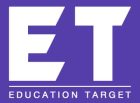You’ve made it to the final stage of the application process. Your teaching interview is tomorrow and you’re feeling nervous. You’ve researched the school thoroughly, prepared answers to potential questions and even read up on the school website to learn about its history and mission statement.
You are pretty confident that you can give an interview your best shot — but what if these interviews aren’t just about you as a prospective teacher? What if they’re also about them as a potential employer? How do you know what they will be looking for in an applicant? And how do you know exactly what kind of answers they will be expecting from you? What are the most common teacher interview questions?
Remember this – every interview is a two-way street. The interviewer wants to see if you are the kind of person whom they would like to have working with their students for an entire school year. These teacher interview questions are quite common for high school, middle school, and elementary teacher interviews.
Prepare For Common Teaching Interview Questions
At the end of the day, no two teaching interviews are ever exactly the same. The individual who is interviewing you will have his or her own expectations, likes and dislikes — and there is no way to predict what those might be. However, there are a few common questions that you will most likely be asked at one point or another. Knowing what they are and being prepared with a thoughtful, well-rehearsed answer will give you a valuable advantage as you go into any interview. Most of these teaching interview questions will be centered around your experience, skills and personal qualities. You will be asked about your approach to teaching, what type of students you prefer to work with, and how you would handle a variety of potential classroom situations. Don’t forget to take the time to research the school at which you are interviewing before you walk in. You can make a great impression from the start by mentioning something from their website or highlighting something that you find interesting about the institution.
What is your teaching philosophy?
This is one of the most common questions that you will be asked during your interview. Make sure to have a clear and concise answer prepared ahead of time. This question is not only about your philosophy on educating students, but also about your approach to teaching and how you would work with your colleagues as part of a team. This is a great opportunity to showcase how much you know about the profession and how seriously you take your role as a teacher.

What is your biggest weakness?
This question is designed to throw you a little off balance. However, you can use this opportunity to show the interviewer that you are a self-aware and balanced individual. This is not an invitation for you to complain about your faults for 15 minutes straight. You are expected to have a positive spin on whatever you decide to say. Above all, you want to make sure that your answer is truthful and something that you would be comfortable repeating on the front page of tomorrow’s newspaper. Be careful to avoid negatives in your answer. You don’t want to sound as if you’re trying to excuse subpar performance or anything else that would be viewed as a negative. The interviewer wants to know what you are doing to improve your skills and overcome the shortcomings in your overall professional performance.
Why do you want to be a teacher?
There are many paths that lead people to a career in teaching. Some people were raised in a home where their parents were teachers. Others were inspired to pursue a career in education after they took a few outstanding classes in college. Still others are interested in being a teacher after being inspired by their own child’s interest in the field. Whatever the reason, the interviewer wants to know how much you know about the profession and how well you can defend your decision to become a teacher. What are some of the challenges of being a teacher? What are the rewards that come from helping to educate young minds? Why do you think you would be successful in this profession?
Why are you leaving your current profession?
The reason you are leaving your current profession almost always comes up during your teaching interview, no matter what your profession is. You don’t have to give a long, drawn-out account of why you are making the switch, but a simple and concise answer will suffice. If you are changing professions because you are burnt out on your current line of work, make sure to emphasize that you are looking for a new challenge and that you still have a passion for helping others. Above all, make sure your new profession is a good fit for your skills and interests. If you are making a drastic career change, you will want to be prepared to explain how you plan to acquire the skills you will need to excel in your new line of work.
Tell me about a time when you’ve failed?
Just as you are being asked about your strengths and weaknesses, your interviewer wants to see if you can turn a negative into a positive. Perhaps you had a bad semester or you failed a particular class. Perhaps you made an error in judgement when you were supervising a particular project at work. The important thing is to show the interviewer that you have learned from your mistakes and you know how to correct your errors moving forward. Be careful not to sound like you are making excuses for your actions. You don’t want to come across as someone who is defensive and unwilling to accept their share of the blame for an error in judgement. Above all, you want to make sure that your answer is something that happened in the past and that you have learned from your mistake.
How do you handle stress and conflict with students?
This is another question that is designed to get you off balance and make you think on your feet. You don’t have to have years of experience dealing with stressed-out students to give a good answer to this question. It is important that you show the interviewer that you know how to remain calm and collected in any situation. You can show them that you have the discipline to think logically and make sound, informed decisions while remaining patient and respectful no matter what is happening around you.
What type of classroom environment do you prefer to teach in?
There are many different ways to approach teaching a classroom full of students. Some teachers prefer to keep a very structured environment in which the students know exactly what is expected of them at all times. Other teachers prefer to keep the classroom open and flowing with energy. Whatever your preferred teaching style is, make sure to include it in your answer to this question.
Summing up
This is your last chance to impress the interviewer and make a lasting impression. Before you leave the room, you want to make sure that the interviewer knows that you are the perfect candidate for this job. You can do this by asking follow-up questions, making sure you understand the expectations of the job and by asking for the job if you are certain that you are the right person for the position. You can also use this opportunity to let the interviewer know what your long-term goals are. By telling the interviewer about the type of impact you hope to have on your students, you will also be showing them that you care about your profession and that you have the drive and determination to succeed.
https://www.edutopia.org/article/11-questions-youll-be-asked-teaching-interview



